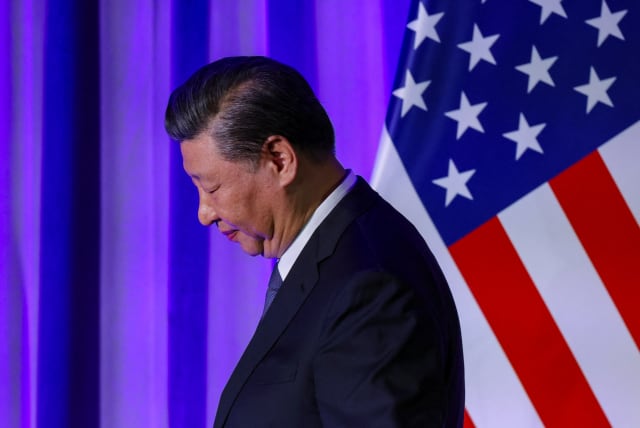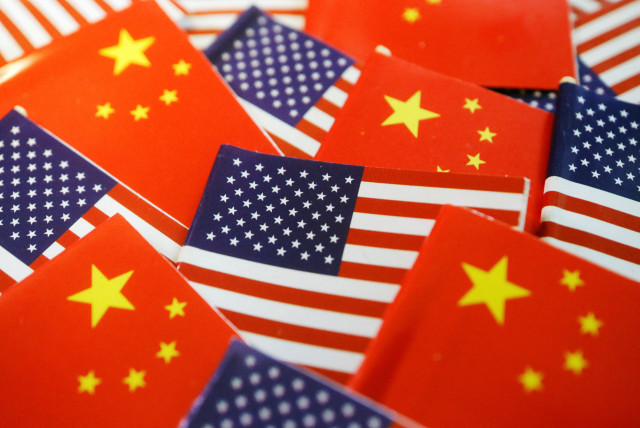US calls out Chinese companies it says are helping China's military

The updated list is one of the numerous actions Washington has taken in recent years to highlight and restrict Chinese companies that it says may strengthen Beijing's military.
The United States on Wednesday added more than a dozen Chinese companies to a list created by the Defense Department to highlight firms it says are allegedly working with Beijing's military, as part of a broader effort to keep American technology from aiding China.
New additions to the list, first reported by Reuters, were posted on the Department of Defense website and include memory chip maker YMTC, artificial intelligence company Megvii, lidar maker Hesai Technology HSAI.O and tech company NetPosa.
Amid strained ties between the world's two biggest economies, the updated list is one of numerous actions Washington has taken in recent years to highlight and restrict Chinese companies that is says may strengthen Beijing's military.
A spokesperson for the Chinese embassy in Washington said China opposed the move and called it an abuse of state power, adding that it ran counter to the US's "alleged commitment to market competition and international fair trade."
China's foreign ministry urged the United States to "immediately rectify the above discriminatory practices" and provide Chinese firms "a fair, just and non-discriminatory environment" to operate in.
"(This) violates the principles of market competition and international economic and trade rules that it has always advocated, and undermines the confidence of foreign enterprises in investing and operating in the United States," spokesperson Wang Wenbin said at a regular briefing on Thursday.
Hesai Group said it does not sell products to any military in any country and it does not have ties with any military. The company said it was disappointed to be added to the list.
YMTC, and Megvii did not immediately respond to requests for comment.
While being placed on the list doesn't involve immediate bans, it can be a blow to designated companies' reputations and represents a stark warning to U.S. entities and companies about the risks of conducting business with them. It could also add pressure on the Treasury Department to sanction the companies.
In addition, the 2024 National Defense Authorization Act added some teeth to the "Section 1260H" list, prohibiting the Defense Department under Section 805 of the law in coming years from contracting with any of the designated companies.
"The Defense Department's updated 1260H list underscores China's unwavering commitment to its military-civil fusion strategy," said Craig Singleton, a senior fellow at the Foundation for Defense of Democracies.
'Major reputational risks' to companies
"Being listed on 1260H poses major reputational risks to Chinese companies," he added, noting that some Chinese firms have tried to be removed from the list.
Other firms added on Wednesday include China Three Gorges Corp, China Construction Technology Co and Yitu Network Technology, as well as publicly traded companies Chengdu JOUAV Automation Tech Co 688070.SS, Chengdu M&S Electronics Technology Co 688311.SS, Guizhou Aviation Technical Development Co 688239.SS, and ShenZhen Consys Science & Technology Co 688788.SS.
They join previously listed aviation company AVIC, BGI Genomics Co, China Mobile 0941.HK, energy company CNOOC 600938.SS and China Railway Construction Corp 601186.SS.
Separately on Wednesday, senior US officials, including FBI Director Christopher Wray, warned that hackers linked to China's government are preparing to cause "real-world harm" by targeting critical US infrastructure, such as water treatment plants, the electric grid, oil and natural gas pipelines, and transportation hubs.
Jerusalem Post Store
`; document.getElementById("linkPremium").innerHTML = cont; var divWithLink = document.getElementById("premium-link"); if (divWithLink !== null && divWithLink !== 'undefined') { divWithLink.style.border = "solid 1px #cb0f3e"; divWithLink.style.textAlign = "center"; divWithLink.style.marginBottom = "15px"; divWithLink.style.marginTop = "15px"; divWithLink.style.width = "100%"; divWithLink.style.backgroundColor = "#122952"; divWithLink.style.color = "#ffffff"; divWithLink.style.lineHeight = "1.5"; } } (function (v, i) { });

